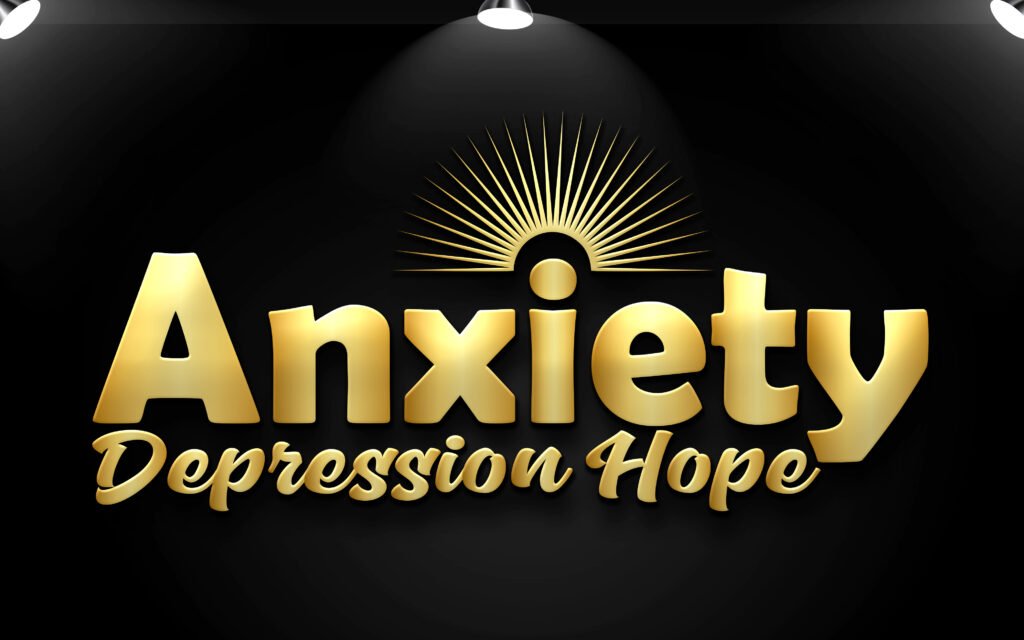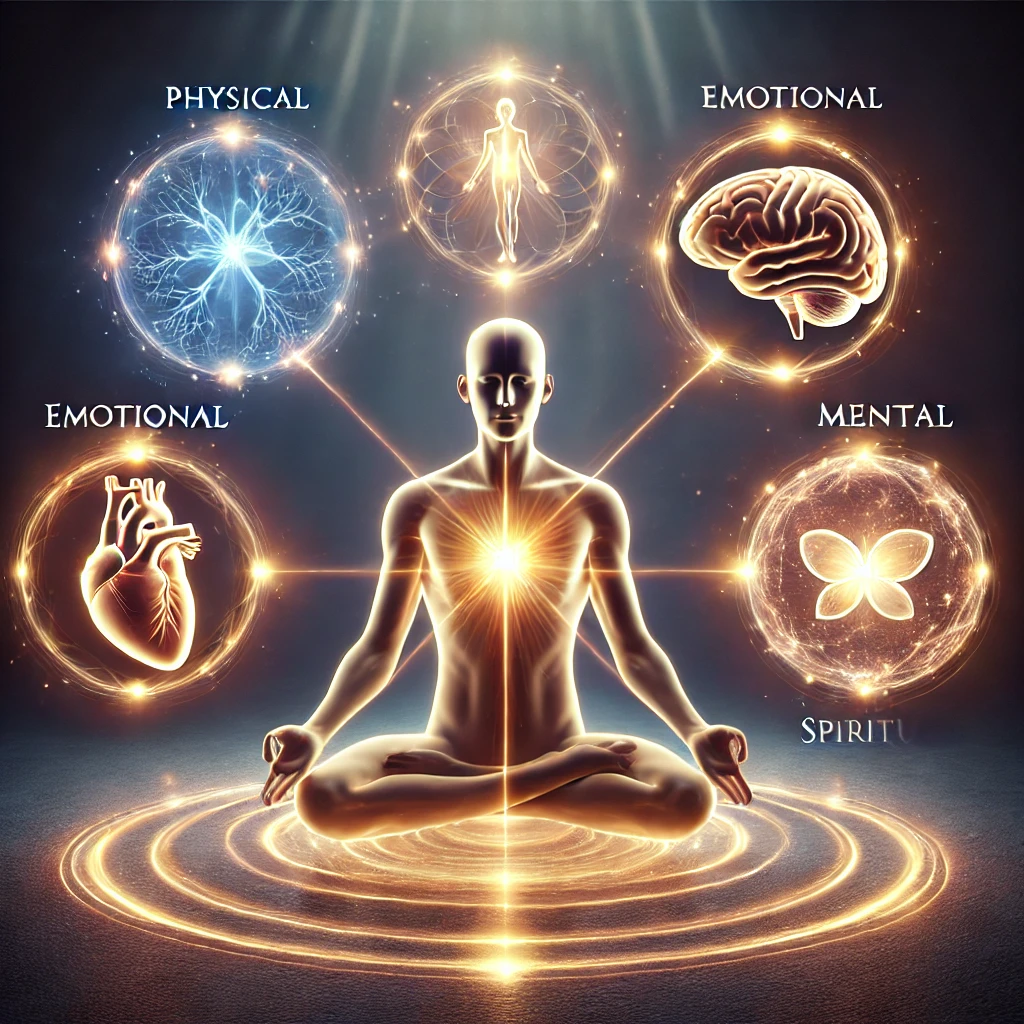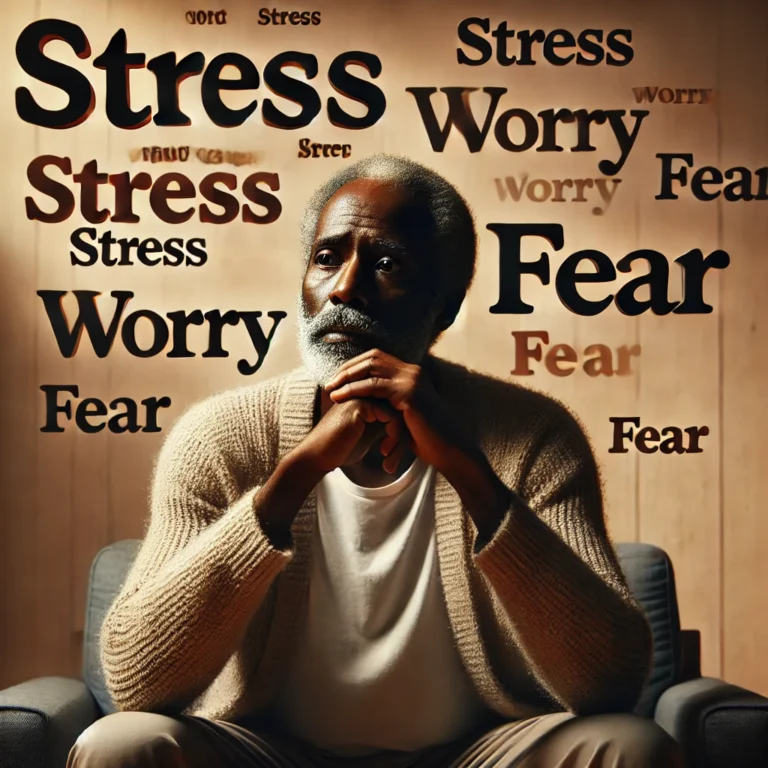Mastering the 4 Bodies to Overcome Anxiety
Introduction to the 4 Bodies Concept
The concept of the four bodies—physical, emotional, mental, and spiritual—affirms the intricate connection among different aspects of human experience. Each body serves a unique function and together they form a comprehensive framework for understanding well-being. Recognizing these four bodies can be especially beneficial for those grappling with anxiety, as imbalances in any one area can significantly affect the others.
The physical body encompasses our biological needs, including nutrition, exercise, and overall health. When our physical health is compromised—whether through poor diet, lack of physical activity, or inadequate sleep—anxiety can manifest more intensely. It is essential to prioritize physical wellness, as a stable foundation in this area can help mitigate feelings of anxiety.
The emotional body deals with feelings and emotional intelligence. Emotions are inherently linked to our experiences; unresolved emotions can lead to heightened anxiety levels. Acknowledging and expressing our emotions in a healthy manner not only promotes emotional well-being but also plays a crucial role in alleviating anxiety.
Transitioning to the mental body, this aspect pertains to our cognitive processes, including thoughts, beliefs, and perceptions. Negative thought patterns often exacerbate anxiety, highlighting the importance of mental clarity and resilience. Employing strategies such as mindfulness, cognitive behavioral techniques, and positive affirmations can greatly improve our mental health.
Finally, the spiritual body focuses on our connection to something larger than ourselves, whether through religion, philosophy, or personal values. A strong spiritual foundation can provide comfort, purpose, and meaning in life, which are essential elements for managing anxiety. Recognizing the interconnectedness of these four bodies is fundamental for developing a holistic approach towards overcoming anxiety. By addressing imbalances across these realms, individuals can work toward achieving a more harmonious state of being.
Physical Body: Strengthening the Foundation
The physical body plays a pivotal role in both the experience and management of anxiety. The intricate link between physical health and mental well-being is increasingly recognized in contemporary psychology. By addressing factors such as diet, exercise, and sleep, individuals can create a robust foundation to combat anxiety effectively.
Diet is a critical component of physical health. Consuming a well-balanced diet rich in whole foods, including fruits, vegetables, lean proteins, and whole grains, can influence mood and anxiety levels. Certain nutrients, such as omega-3 fatty acids, magnesium, and B vitamins, are particularly beneficial in fostering mental resilience. On the other hand, excessive intake of sugar and processed foods can exacerbate feelings of anxiety, making mindful eating crucial for mental clarity and emotional stability.
Exercise serves as another powerful tool in reducing anxiety symptoms. Regular physical activity promotes the release of endorphins, often referred to as ‘feel-good’ hormones, which can alleviate stress and anxiety. Whether it’s a brisk walk, yoga, or strength training, engaging in consistent exercise routines can enhance physical health while simultaneously improving mood regulation. Establishing a routine that incorporates aerobic and strength-building exercises is beneficial not just for physical fitness but also for mental well-being.
Quality sleep is equally essential in managing anxiety. Sleep disturbances are often linked with heightened anxiety levels, creating a cycle that can be difficult to break. Prioritizing sleep hygiene through consistent sleep schedules, creating a relaxing bedtime environment, and limiting screen time before bed can significantly impact the quality of sleep. Recognizing physical symptoms of anxiety, such as muscle tension or fatigue, often signals the need for improved sleep habits.
By nurturing the physical body through healthy dietary choices, regular exercise routines, and restorative sleep practices, individuals can build a strong foundation for overcoming anxiety. Taking proactive steps in these areas not only enhances physical health but also empowers individuals to manage anxiety more effectively.
Emotional Body: Navigating Feelings and Resilience
The emotional body plays a crucial role in how individuals experience and respond to anxiety. It encompasses our feelings and emotional responses, making it imperative to cultivate emotional awareness and regulation to effectively manage anxiety. Many individuals encounter anxiety triggers that can result in overwhelming feelings, which is where understanding and honing emotional resilience becomes vital. Emotional resilience allows individuals to bounce back from challenging situations, thereby fostering a healthier approach to life’s stresses.
One effective method for enhancing emotional health is through mindfulness practices. Mindfulness encourages individuals to stay present and acknowledge their feelings without judgment. This practice not only aids in recognizing anxiety triggers but also allows for a more non-reactive approach towards them. By facilitating a deeper connection with one’s emotions, mindfulness can significantly contribute to emotional regulation, thus alleviating anxiety manifestations.
Another beneficial technique is journaling. Documenting one’s feelings and thoughts can serve as a therapeutic outlet, helping individuals process their emotions constructively. Journaling allows for emotional expression, providing clarity and understanding that can assist in identifying patterns pertaining to anxiety. Furthermore, it can empower individuals to articulate their feelings and develop coping strategies tailored to their emotional landscape.
Additionally, seeking professional help through therapy can provide a structured environment to explore emotions and navigate anxiety. Therapists can guide individuals in developing coping mechanisms and fostering resilience, equipping them with tools to manage anxiety more effectively. This collaborative process promotes emotional growth, helping individuals build a robust framework for understanding and expressing their feelings.
Overall, navigating the emotional body involves cultivating awareness, practicing mindfulness, and utilizing therapeutic resources. By enhancing emotional health, individuals can gain a greater sense of control over their emotional responses, ultimately decreasing the impact of anxiety in their lives.
Mental Body: Reshaping Thought Patterns
The mental body plays a crucial role in the experience of anxiety, predominantly through the influence of thought patterns and belief systems. Many individuals struggling with anxiety often find themselves entrenched in cognitive distortions, which are irrational thought processes that exacerbate feelings of fear and unease. Common examples of these distortions include catastrophizing, black-and-white thinking, and overgeneralization. Understanding these patterns is the first step towards cultivating a healthier mental landscape and, ultimately, a more resilient response to anxiety.
To reshape negative thoughts, a variety of cognitive-behavioral strategies can be employed. One effective method involves identifying and challenging these cognitive distortions. When a negative thought arises, pausing to question its validity can pave the way to more rational, constructive thinking. For instance, instead of thinking “I will fail,” reframing it to “I may not succeed this time, but I can learn from the experience” fosters a growth mindset. This type of reframing encourages individuals to view challenges as opportunities for development rather than as insurmountable obstacles.
Visualization is another powerful technique for managing anxiety. By creating positive mental images that represent calmness or success, individuals can train their minds to focus on affirmative outcomes rather than potential failures. This practice not only helps in reducing anxiety but also reinforces the belief in one’s ability to cope with future challenges effectively.
Building mental resilience is essential in overcoming anxiety. Cultivating habits such as mindfulness, journaling about daily experiences, and practicing gratitude can significantly enhance one’s mental wellness. These strategies empower individuals to take an active role in their mental health journey, transforming anxiety from a debilitating condition into a manageable aspect of life. Adopting these techniques not only reshapes negative thought patterns but also lays the foundation for long-lasting wellness.
Spiritual Body: Finding Purpose and Connection
The spiritual body plays a crucial role in overcoming anxiety by fostering a sense of purpose and connection. Many individuals experience anxiety as a result of feeling disconnected from their values, beliefs, or a higher purpose. Engaging in spiritual practices can help bridge this gap, offering pathways to peace and contentment. Activities such as meditation and prayer provide individuals with opportunities to turn inward, facilitating a deeper exploration of one’s inner self. These practices encourage mindfulness, allowing one to observe thoughts and feelings without judgment, which can alleviate anxiety symptoms.
Furthermore, connecting with nature can significantly enhance one’s spiritual experience. Nature has a profound effect on mental well-being; spending time outdoors can help ground individuals, fostering a sense of belonging to something greater than oneself. Whether it’s taking a walk in a park or hiking in the woods, immersing oneself in nature encourages tranquility and reflection, which are essential for managing anxiety. Additionally, establishing a routine that includes these spiritual practices can provide stability, aiding in the creation of a resilient mindset.
Exploring one’s purpose, values, and beliefs plays an essential role in cultivating resilience against anxiety. Individuals are encouraged to ask themselves reflective questions regarding what brings fulfillment and joy to their lives. As one identifies personal beliefs and values, it becomes easier to align daily actions with these principles, fostering a sense of integrity and emotional harmony. Incorporating spiritual practices into everyday life could take the form of setting aside quiet time for reflection, engaging in community service, or participating in a faith group.
In conclusion, by integrating spiritual practices such as meditation, connection to nature, and exploration of personal values into daily routines, individuals can promote peace and reduce anxiety. A dedicated focus on the spiritual body can encourage profound transformation and enhanced resilience in the face of life’s challenges.







